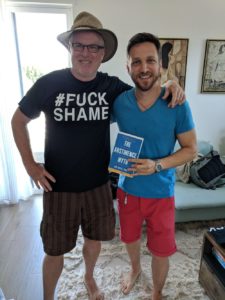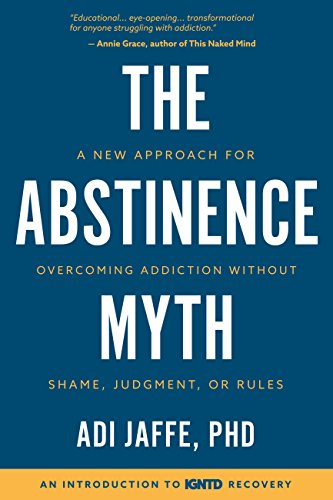Adi Jaffe , Ph.D. is a nationally recognized expert on mental health, addiction and stigma. He lectures in the Psychology department at UCLA. He is passionate about the role of shame in destroying lives and aims to greatly reduce the stigma of mental health in this country. In this context, Dr. Jaffe has used his personal experience as an incredibly effective inspirational and motivational tool.
, Ph.D. is a nationally recognized expert on mental health, addiction and stigma. He lectures in the Psychology department at UCLA. He is passionate about the role of shame in destroying lives and aims to greatly reduce the stigma of mental health in this country. In this context, Dr. Jaffe has used his personal experience as an incredibly effective inspirational and motivational tool.
During his undergraduate career, Adi began struggling with drug issues himself, eventually leading to a 4 year hiatus from studies and into the Los Angeles drug-dealing world, where Adi’s days looked more like a re-enactment of a beatnik novel or a Quentin Tarantino film than the life of an upper-middle class suburban kid. Following a SWAT team arrest in his apartment, and extended court case and a year-long jail sentence, Adi began rebuilding his life. This eventually led to his attainment of a Ph.D. from UCLA’s doctoral program in psychology.
Music: “Ride,” by Brett Newski.
Find me on Instagram or Twitter.
To listen to this episode, plus get access to bonus content including bonus episodes, newsletters, and exclusive blog posts, please head over to Substack.


Recently I had a very nasty fight with my older sister. We were having lunch with our parents and my dad had just hung up the phone with a family member who’s been sober for many years, but my dad said his voice sounded as if he had been drinking. So there was this fatalist tone to this, as if this person had been ‘winning’ over his alcohol addiction, but now he had let himself be beat by it and was once again at ‘square one’.
So I –being unappointed the ne’er-do-well of my family– dared to mention all these things about how the success rate of AA is less than 10%, and how there’s far more effective treatments out there like Ibogaine clinics, etc. I brought up this really good article I found some years ago (https://www.theatlantic.com/magazine/archive/2015/04/the-irrationality-of-alcoholics-anonymous/386255/) to back up my claims, but my sister got FURIOUS with me and accused me of being "an alcoholic in denial" myself –we did stop talking to each other for a couple of weeks, but we’re ok again.
So yeah, there’s definitely a ‘religious zeal’ by which most people look at treatments like the A.A. Specially in a country like Mexico, I feel, where even non-religious people like that family member of ours are not able to escape the ‘Catholic guilt’ linked to things like sex, booze and drugs.
It also makes me think of another family member who also had problems with alcohol, but then got sober and is now running marathons in his late 40’s –he’s run at Boston, New York, Mexico city, etc– and one could look at that behavior as swtiching one addiction for another; of course, running is not considering an ‘addiction’ because it’s ‘healthy’ –even though there are MANY marathon runners who do die of a heart attack while competing– but I think in the end it has not only to do on whether society approves/rewards of your addictive behavior –"workaholic" = GOOD; "shopaholic"= GOOD; "alcoholic" = BAD; "stoner"= PUT YOUR HANDS IN THE AIR– but also whether the addictive behavior is empowering or disempowering to the person.
You could say Van Gogh’s ‘addiction’ with his painting was detrimental to him, but I’m sure that from his perspective, it was an empowering addiction. Likewise, in the example I’m giving running marathons is also an empowering behavior.